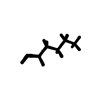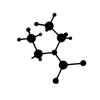
Psychotherapy approaches for alcohol use treatment include
- Family therapy
- Cognitive behavioral therapy (CBT)
- Dialectical behavioral therapy (DBT
Alcoholism, alcoholic, and alcohol use disorder are defined by alcohol dependence, which is the body’s physical inability to stop drinking. Alcohol consumption increases the release of “feel good” neurotransmitters in the brain, resulting in euphoria and decreased inhibition. Over time, more alcohol is needed to produce the same effects in the brain. In other words, individuals must drink more and more alcohol to experience the same effects. This leads to a cycle of increased drinking and an increased tolerance that eventually leads to dependence and addiction. When someone develops alcohol dependence, their body will go through a state of withdrawal in the absence of alcohol. Withdrawal symptoms include tremors, hallucinations, and convulsions that can lead to death if not detoxed properly.

Decreases cravings associated with alcohol and reduces alcohol related withdrawal symptoms.

Discourages alcohol use by causing severe, uncomfortable side effects when alcohol is consumed after taking this medication.

An opioid antagonist that works to prevent alcohol consumption by blocking the positive effects of alcohol.

Seeking professional treatment for an alcohol use disorder (alcohol addiction, alcohol abuse) is the best way to stop drinking. Many individuals turn to alcohol (and other substances) as a coping strategy to deal with stress, negative feelings, boredom, and past traumas with no intention of becoming a heavy drinker. However, alcohol is very addictive. Over time, the individual will experience physical withdrawals after abstaining from chronic alcohol use.
AKUA Mind & Body’s Alcohol Rehabilitation Facilities initially aims to ease the withdrawal symptoms by close monitoring and prescribing a slow taper of benzodiazepines. Benzodiazepines work on the same receptors as alcohol in the brain and can help prevent and worsen the deadly withdrawal effects associated with alcohol. If an individual is experiencing withdrawal symptoms, they will need to be closely monitored in a hospital or residential treatment for approximately 72 hours. Once the acute withdrawal phase is over, our highly trained clinicians aim to identify the underlying triggers resulting in the alcohol use behavior.
The goal of treatment is to replace negative coping skills and patterns with positive cognitive behavioral skills. Alcohol treatment includes both a pharmacological approach and a psychotherapy approach. Medications are used to prevent cravings associated with alcohol, to lessen or prevent withdrawal effects.
AKUA Behavioral Health is a full-service treatment program that offers a wide range of “east meets west” treatment modalities for many different populations struggling with substance use and mental health disorders. We offer both intensive residential programs as well as outpatient treatment. AKUA Behavioral Health works diligently with each client and their family to ensure that their treatment plan is specifically tailored to their needs, and not just their disorder.
Alcohol use disorder can have chronic effects on both the mind and the body, but intoxication is only temporary, lasting for several hours. Alcohol is metabolized by the liver and is absorbed into the bloodstream, where it eventually travels to the brain, resulting in symptoms of intoxication. The average, healthy adult will usually feel the effects of one drink within 15-45 minutes of consumption.
At a Blood-Alcohol Content (BAC) of 0.1%, an individual will be clearly intoxicated. Depending on age, weight, gender, and tolerance, this level of intoxication could be reached with around 4 drinks in one hour.

On average, the liver can metabolize 1 standard drink per hour. Age, weight, metabolism, food consumption, and gender can affect this rate.
Age, gender, weight, metabolism, food consumption and the type of alcohol consumed are all factors that influence how fast alcohol is broken down in the body.

The diagnosis of alcohol use disorder is based on the individual’s drinking history. There are many different assessments health care professionals use to screen individuals for alcohol use disorder, including the 10-question Alcohol Use Disorders Identification Test (AUDIT), the abbreviated 3-question Audit-Consumption (Audit-C) and the CAGE questionnaire. The CAGE questionnaire is probably the most widely used screening tool among both medical and mental health professionals and includes the following questions:
As an individual sinks deeper into alcohol use disorder, they may begin to stray away from social interactions, distancing themselves from family and friends. They may even lash out at loved ones, and resort to telling lies in order to cover up their drinking habits. Financial problems are likely to arise due to not only the costs of supporting alcohol use disorder, but also the loss of productivity and regular work hours due to increased illness, hangovers, and other adverse effects.
Individuals with alcohol use disorder will often find themselves in stormy romantic relationships. Alcohol use disorder is strongly linked to codependency, verbal abuse, and physical abuse. Deterioration within a couple often stems from arguments, financial troubles, and acts of infidelity or, worse, domestic violence.
Alcohol use disorder also decreases sex drive, which can bring even more problems into an already strained relationship.


Once alcohol is absorbed in the bloodstream, it travels to the brain resulting in an immediate firing of neurotransmitters. Chronic alcohol use changes the brain chemistry and communication systems by rewiring the reward and pleasure pathways in the brain creating more intense cravings for alcohol rather than for natural rewards.
Addiction results in compulsive and harmful behaviors. Depending on the amount of alcohol consumed, and the extent of alcohol use over time, alcohol can have devastating effects on the brain:
